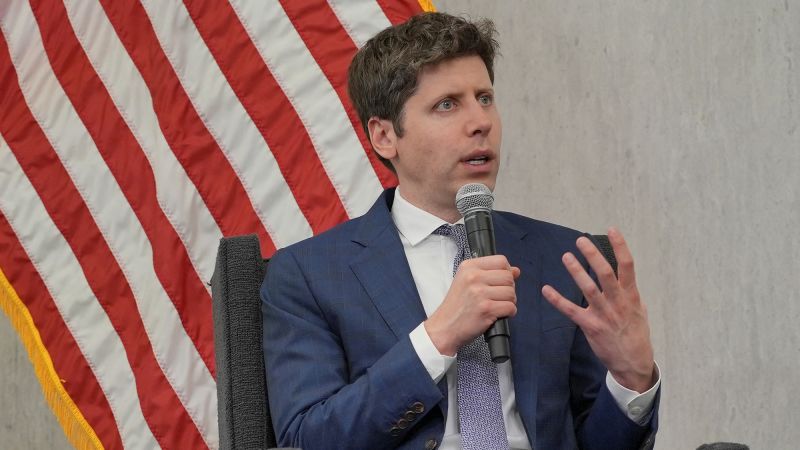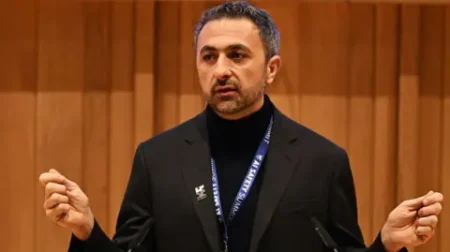In a recent interview at the Federal Reserve, OpenAI’s CEO Sam Altman expressed his significant concerns regarding the rising use of artificial intelligence (AI) in potential fraudulent activities. He warned that the world stands at the precipice of a “fraud crisis” as malicious entities may exploit AI to impersonate individuals effectively. Altman highlighted that certain financial institutions still utilize an outdated method of authentication whereby a voice print is accepted for considerable financial transactions. He stated the following: “A thing that terrifies me is apparently there are still some financial institutions that will accept a voice print as authentication for you to move a lot of money or do something else.” This shows his concern over the inadequacy of current security measures against AI advancements.
Altman elaborated that AI has rendered most traditional authentication methods, except for passwords, obsolete. His comments were made during an extensive discussion on the economic and societal effects of AI, emphasizing its implications for the US financial landscape. The gathering included a mix of representatives from prominent American financial institutions. At the same time, the White House is preparing to unveil its “AI Action Plan,” a document detailing the administration’s strategy for regulating the technology while aiming to maintain American superiority in the global AI arena.
In tandem with its pairing of political and technological ambitions, OpenAI revealed its plans to establish its inaugural office in Washington, D.C., set to open its doors in early 2024. The new location will accommodate about 30 employees and will be led by Chan Park, OpenAI’s head of global affairs for the United States and Canada. Joe Larson, an individual transitioning from defense technology company Anduril, will join OpenAI as the vice president of government to help spearhead its Washington initiatives. This office is expected to be a vital hub for hosting policymakers, showcasing innovations, and conducting AI training sessions for various stakeholders, including educators and government officials.
While questioning the merits of blanket regulations that could hinder technological progression, OpenAI, under Altman’s guidance, has advised the Trump administration to adopt a balanced approach. Earlier this month, the Senate voted to eliminate a contentious provision from Trump’s legislative agenda that aimed to stifle states from enforcing AI-related regulations for a decade.
The threat of AI technology facilitating fraud is not confined to Altman’s musings; it echoes concerns voiced by agencies such as the FBI, which warned about the potential for AI-enabled scams. Reports have surfaced showcasing instances where AI voice technologies were misused to impersonate individuals in scams aimed at extracting money, even targeting the family and friends of unsuspecting victims. Recent incidents have demonstrated the technology’s potency, with AI-generated impersonations reportedly reaching high-profile figures like Secretary of State Marco Rubio.
Altman, underscoring the urgency of these matters, stated, “I am very nervous that we have an impending, significant, impending fraud crisis.” He predicts that the current state of fraud via voice calls will soon transition into more sophisticated simulations through video or FaceTime communications, raising alarms about the need for society to proactively address the challenges posed by advancing technology.
The discourse did not narrowly focus on the risks of AI; Altman shared apprehensions about the overarching implications of AI superintelligence. He voiced concerns regarding the potential misuse of such advanced technology before proper defenses are set in place—referring to scenarios where adversaries could leverage AI to disrupt national infrastructures or devise bioweapons. This revealed his awareness of the strategic technological advancements by global adversaries, particularly China, casting uncertainty on America’s competitive edge.
On the employment front, Altman exhibited a more optimistic outlook than some of his contemporaries in Silicon Valley who perceive AI as a harbinger of job losses. He posited that while many job roles may be altered or become obsolete due to AI, entirely new opportunities would arise. The future workforce dynamics could shift significantly, with a hypothetical job landscape where individuals no longer have traditional jobs, leading to new societal roles emerging primarily serving our human needs for contribution and productivity.
Adding credence to Altman’s reflections, OpenAI’s chief economist Ronnie Chatterji published a report delineating the benefits and potential productivity enhancements AI can offer workers. The report outlined that ChatGPT, which now boasts 500 million users worldwide, plays a crucial role in education and skill enhancement among its user base. Chatterji envisions a collaborative effort involving other economists to delve deeper into the transformative effects of AI regarding employment and the economy within a year through research conducted at the new D.C. office.
As AI technology continues to evolve, it remains imperative to continually assess its implications and prepare for challenges while harnessing the potential benefits it presents.










